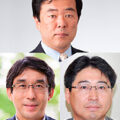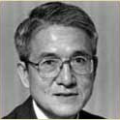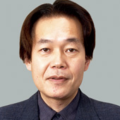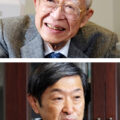Abe No Historical Revisionist
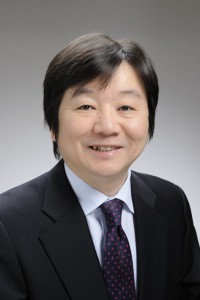
KAMIYA Matake, Professor, National Defense Academy of Japan
Just as I was about to start writing this article, Prime Minister Abe Shinzo dissolved the House of Representatives. The Japanese diet is a bicameral legislature comprising the House of Representatives (Lower House) and House of Councilors (Upper House). While in principal both houses have equal power, greater actual political power rests with the Lower House. This is because the Lower House is granted an advantage over the Upper House in several ways. While the Constitution of Japan (enacted 1947) prescribes that “the prime minister shall be designated from among the members of the diet by a resolution of the diet,” all prime ministers under the Constitution have been chosen from among members of the Lower House. It is also accepted practice for most cabinet members to be appointed from among members of the Lower House. Therefore, an election of the members of the House of Representatives is the most important election in Japan as it decides the course of action for Japan’s politics, and the coming election will have a great impact on the course of action for the future policies of the Abe administration (which may lead to the resignation of Prime Minister Abe).
However, I will not analyze the claims of the individual parties which will be conducting election campaigns or predict the results of the election here. By the time readers read this article, the actual results of the election will have come out. Instead, I will discuss one of the important policy issues over which Prime Minister Abe has been frequently criticized overseas for the past two years but which is less likely to be an election issue. It is the problem of Abe’s so-called recognition of history.
Gratitude for Australian Tolerance and Friendship
On November 22, the day after the dissolution of the Lower House by Prime Minister Abe, the Asahi shimbun newspaper stated in its editorial the following:
The coming year also marks the seventieth anniversary of the end of the war. As for relations with China and South Korea, which have become worse over the recognition of history and territory, things have far from normalized. Will the Abe administration be able to wipe out the skepticism harbored by Europeans and Americans that it may be pursuing “historical revisionism,” and shake hands in reconciliation with its neighboring countries next August?
Prime Minister Abe may intend to deny the negative side of Japan’s history before and during the war. That doubt is held by not a few people in Japan as well as abroad. The editorial of the Asahi shimbun above shows this.
But I think this view is too simplistic. I do not fully support Prime Minister Abe’s recognition and acts over the “history issues.” For instance, I wonder whether the visit to Yasukuni-jinja shrine in December 2014 was in Japan’s interest or not. However, I must refute the claim that Prime Minister Abe intends to fully revise the history of Japan before and during the war, because Abe has shown his intention to honestly acknowledge Japan’s negative history and offer an apology under certain conditions. That intention was displayed in the most dramatic way when Abe delivered the first speech by a Japanese Prime Minister at the Parliament of Australia on 8 July 8 2014 (http://japan.kantei.go.jp/96_abe/statement/201407/0708article1.html). At the start of the speech, he addressed the Australian audiences as follows.
Now, ladies and gentlemen, when we Japanese started out again after the Second World War, we thought long and hard over what had happened in the past, and came to make a vow for peace with their whole hearts. We Japanese have followed that path until the present day. We will never let the horrors of the past century’s history repeat themselves. This vow that Japan made after the war is still fully alive today. It will never change going forward. There is no question at all about this point. I stand here in the Australian legislative chamber to state this vow to you solemnly and proudly.
Then Abe referred to the loss of many Australian lives due to Japan’s acts during the Second World War and expressed a substantial apology.
Our fathers and grandfathers lived in a time that saw Kokoda and Sandakan.
How many young Australians, with bright futures to come, lost their lives? And for those who made it through the war, how much trauma did they feel even years and years later, from these painful memories? I can find absolutely no words to say. I can only stay humble against the evils and horrors of history. May I most humbly speak for Japan and on behalf of the Japanese people here in sending my most sincere condolences towards the many souls who lost their lives.
Kokoda is the name of a place in New Guinea where Japan and Australia fought fiercely against each other in 1942. It is synonymous with the “Battle for Australia” (Peter Dennis, Emeritus Professor, University of New South Wales) among the Australians. Sandakan symbolizes the atrocities the Japanese army committed against the Australians in the Sandakan Death Marches. Abe’s specific reference to these places and explicit admission of the history that the “fathers and grandfathers” of the Japanese engaged in such acts reportedly surprised the Australians. Given the fact that one of Abe’s grandfathers was former Prime Minister Kishi Nobusuke, who faced accusations as a class-A war criminal at the International Military Tribunal for the Far East and was later acquitted, Abe’s words carry a special significance.
And then Abe expressed gratitude for the generous attitude which the postwar Australians have shown the Japanese, quoting the words of Australian Prime Minister R.G. Menzies, “Hostility to Japan must go. It is better to hope than always to remember.”
Again speaking both for Japan and for the Japanese people, I wish to state my great and whole-hearted gratitude for the spirit of tolerance and for the friendship that Australia has shown to Japan. We in Japan will never forget your open-minded spirit nor the past history between us.
This speech was warmly welcomed by Australian society: “Japan’s PM Shinzo Abe gives extraordinarily frank speech at Australian Parliament” (Australian Broadcasting Corporation), “Shinzo Abe’s ‘Sincere condolences’ for Kokoda and Sandakan” (The Australian), “Shinzo Abe’s Surprisingly Heartwarming Speech” (Business Insider Australia). Abe’s frank words apparently succeeded in substantially quelling the ill will against Japan which remained in Australia.
Abe’s speech was also accepted favorably by international society. For example, the Guardian of the United Kingdom reported that “the Japanese prime minister made a historic address to the Australian parliament on Tuesday, offering his condolences for the loss of life in the second world war and vowing never to allow a repeat of ‘the horrors of the past.’”
Moderate Expectations
As you probably understand, the speech above shows the reasons why I must refute the argument that Prime Minister Abe is a “historical revisionist.”
However, many readers may have the following doubts. If Abe could speak about the past using such “extraordinarily frank” words in Australia; why can he not show the same attitude to China and South Korea?
One of the reasons is that there have been no disputes over the facts of the past between Australia and Japan while some facts of the past between China and Japan and between South Korea and Japan have been disputed. But what is more important, Abe probably had “confidence” that the Australians would accept his honest words and apology. And the Australian media’s reports as described above clearly show that the Abe’s expectation was right. So, can Abe (or the Japanese people more broadly) expect the same generous attitude from China and South Korea?
Japanese society has a certain feeling of resignation that China and South Korea will never be content no matter how many times Japan offers an apology. Of course, I think that Japan’s “apologies” have been imperfect in some respects. However, it also cannot be denied that China and South Korea have not shown the generosity that Australia showed following the speech above.
Needless to say, Japan must make further efforts to alleviate the “history issues.” However, it is not only Japan’s lack of effort that prevents a resolution of the problem. Prime Minister Abe’s speech at the Parliament of Australia and the Australians’ reaction to it seem to indicate this.
Note: The views expressed here are the author’s own and do not represent those of the National Defense Academy of Japan or of Japan’s Ministry of Defense.
Reprint from “Abe No Historical Revisionist,” The Japan Journal, December 2014 (Vol. 11 No.9), pp. 22-23.
